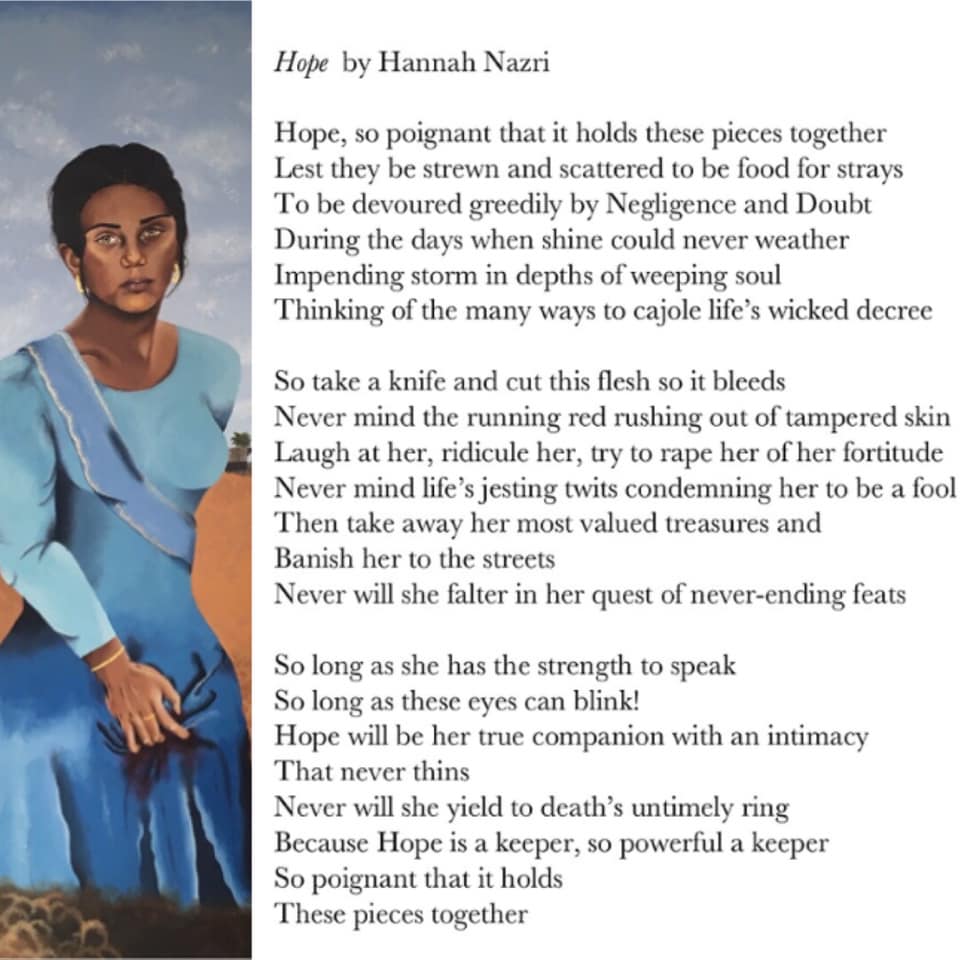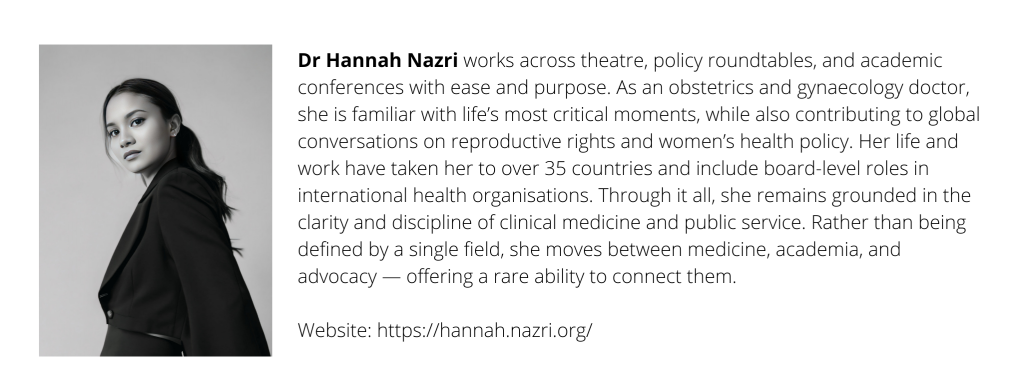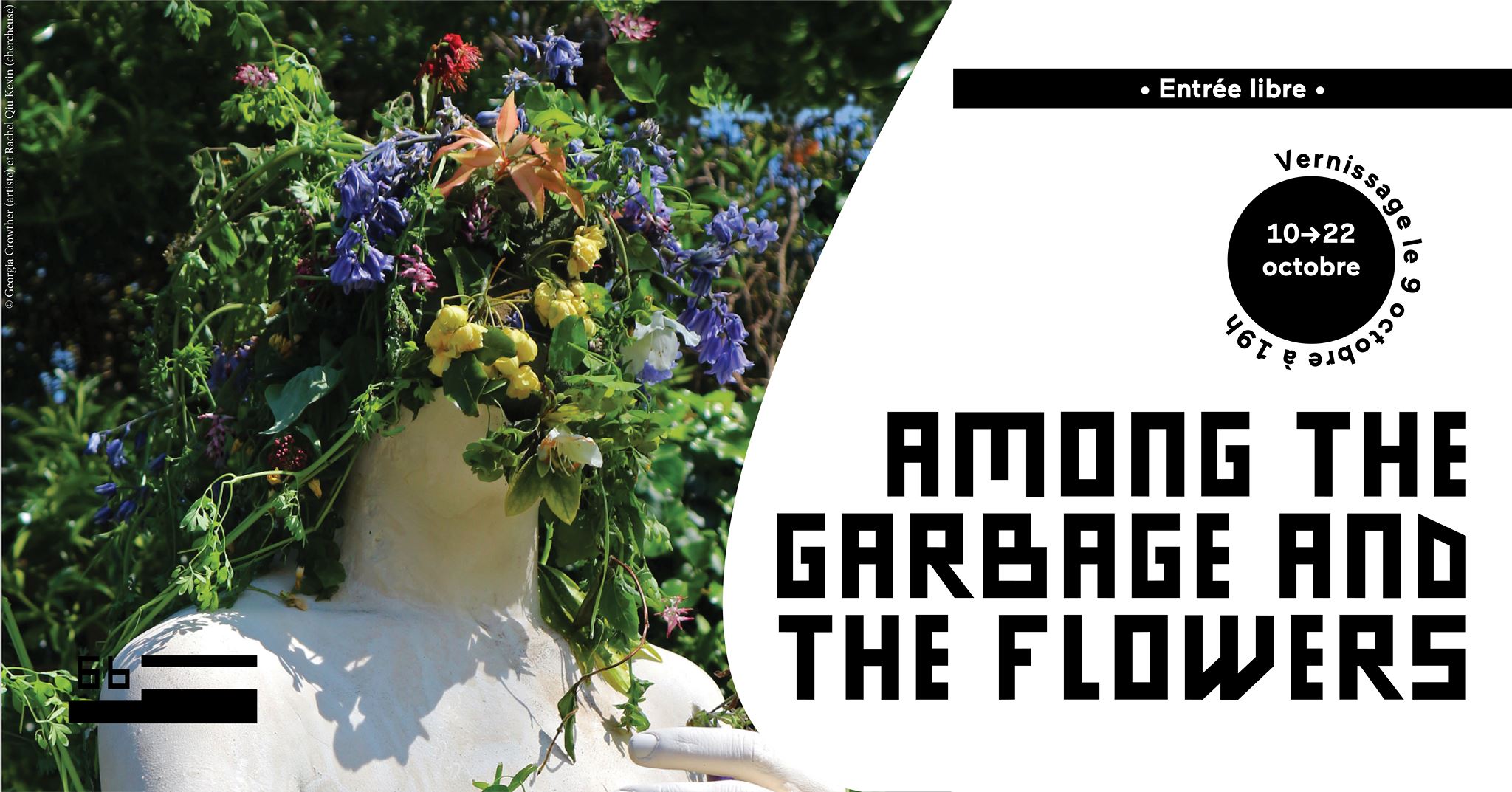Finally submitted my DPhil thesis. It has been challenging working full-time and writing the thesis but I made it! In the meantime, I would like to bring your attention to the catalogue of our art exhibition, “Among the Garbage and Flowers” at le 6b Center of Contemporary Art from 10th – 22nd October 2021, with the opening night on 9th October 2021, organised by the Art, Biodiversity & Climate Network of The Oxford Research Centre in the Humanities (TORCH). The exhibition brings together artists and scientists to question the imaginary divide between the urban and the wild, between anthropogenic and so-called “natural” landscapes.
I would also love to share a poem I wrote alongside a portrait of a woman, showcasing the strength of women despite period stigma and the challenges of climate change, titled “Hope”.
Hope is an art piece portraying the strength of women and girls around the world amidst stigma surrounding menstruation in a challenging world of climate change. At best, menstruation or period stigma has led many women and girls to hide their “predicament”. A 2016 UK YouGov poll uncovered that only 27% of women told their employers that their reduced ability to work was due to period pains. Menstruation or period stigma has led to segregation of girls from their families in South Asia which may expose them to extremely dangerous conditions. In 2018, villagers in India’s Tamil Nadu were devastated with the death of a 14-year-old girl who was forced to sleep separately in a hut because she was menstruating following Cyclone Gaja. In 2016, a 15-year-old Nepalese girl died due to smoke inhalation from the fire that she started in the poorly ventilated hut where she forced into while she was menstruating. As nonsensical the idea of how periods make a woman dirty in South Asia, let us not forget that The Lancet in 1974, had published an article on menotoxins, an idea that was developed by Béla Schick (most popular for the Schick test to detect diphteria immunity) in the 1920s, that women emit toxic substances during their periods, causing correspondents around the world to write in quoting various superstitions about periods. Unbelievably, this menotoxin pseudoscience was brought back in 1977 by a group of scientists who were experimenting on period blood to try and find toxins that can affect plants and women’s moods.
Rising global temperature causes more water evaporating into the atmosphere and increase in atmospheric and oceanic surface temperatures, causing an increase likelihood of droughts and more intense storms. Rising sea levels also mean that higher grounds are now exposed to the destructive forces of waves and storms causing more vulnerable communities to be displaced. Another theme included in this art piece is pollution – single-use plastic contributes to harmful heat-trapping gases at every stage of its life cycle. The building blocks of plastic are oil, gas, and fossil fuels. From extracting and transporting plastic, to refining of plastics and its waste management, plastic harms the environment and affects human health through the production of harmful pollutant gases and microplastics. If we continue to use plastic, plastics will account for 20% of oil consumption by 2050 according to the World Economic Forum. As water levels keep rising and natural disasters become all too common – it is women that will suffer the most. But women are strong, and we shall fight our rights and for Mother Earth.


Related posts:
- Suara Empuan: Sanggup Mengandung Elak Datang Bulan, Apa Kata Doktor | Peduli Merah
- Suara Empuan: Terpaksa Berlapar Kerana Miskin Haid, Apa Kata Doktor | Peduli Merah
- Malaysia: FGM/C, Period Spot Checks, and Sexual Harassment | Harvard Public Health Review
Like what you read? Subscribe to my blog.
About the Author: Hannah Nazri


